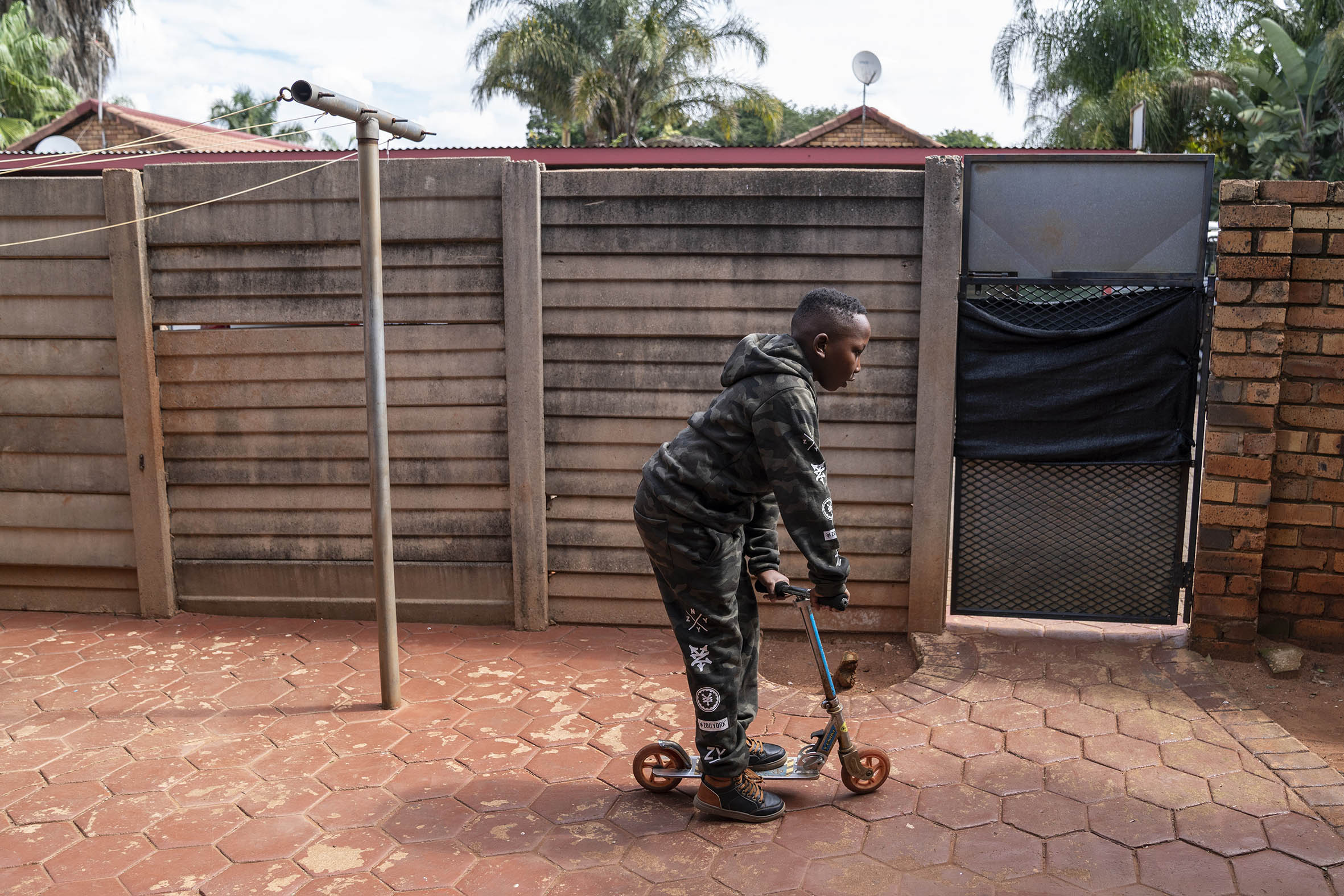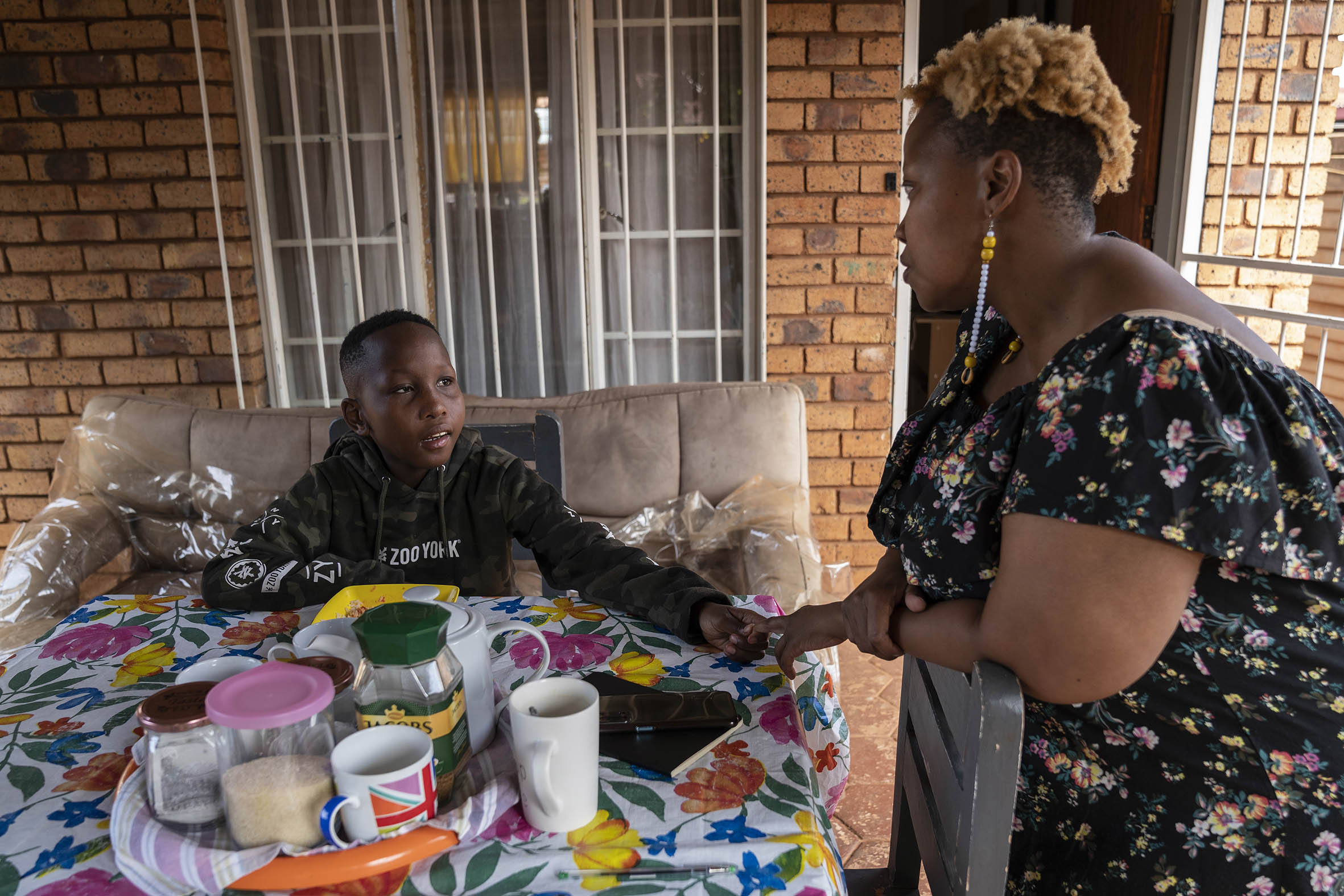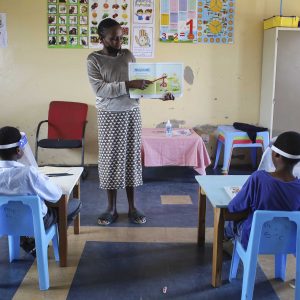Inclusive education unrealised after 21 years
Published in 2001, the white paper for inclusive education is yet to be passed into law, leaving disabled learners without access to schools and with little legal recourse.
Author:
17 May 2022

The education needs of children with impairments are neglected, despite an existing framework to remedy this. This lack of attention to children with additional needs worries many parents desperate for more inclusive schools.
“My biggest frustration with the Department of Basic Education is inclusive education, not just admission,” says Kgomotso Mmalegae Moalusi, 40, mother to autistic twin boys Lesedi and Lethabo Moalusi, 10.
Moalusi, who is also a member of her children’s school governing body, says inclusion means that children’s needs, talents and impairments are the foundation of the syllabus. She wants the curriculum at schools for disabled children to empower pupils to learn science – or just something other than wood or needlework.
“I have a child who can dismantle a phone and put it back together again, even though he cannot speak,” she says. Education programmes need to be creative and adaptive to allow these children to learn, grow and be innovative.
Related article:
Moalusi has asked the principal at her children’s school to improve communication by changing the old intercom system to a walkie-talkie, which would make the learning environment more conducive for autistic children.
Children at these schools also deserve to participate in sports. “Schools have fields and swimming pools – our kids do not know how to swim because somebody else does not want to take the extra duty of having to teach them how to do it,” Moalusi says.
Without legally binding regulation, the needs of learning for disabled children are yet to be recognised. Published in 2001, the Education White Paper 6: Special Needs Education – Building an Inclusive Education and Training System has been gathering dust for the past 21 years. “This white paper arises out of the need for changes to be made to the provision of education and training so that it is responsive and sensitive to the diverse range of learning needs,” it states. But there seems to be no obvious plan to turn it into law.
Mobilising for inclusion
Professionals and a group of parents raising autistic children established Autism Matters, a non-profit organisation advocating for autistic people, in January. April was Autism Awareness Month, so under the banner of Autism Matters, on 1 April parents held marches in Gqeberha, Knysna and Pretoria to highlight the lack of services for autistic children.
Moalusi was among the parents who marched to the offices of the basic education department in Pretoria to present a memorandum. The march, according to Moalusi, was about how long children wait to get admission and what happens at schools for those who are admitted. The memorandum underlines the need for an inclusive education policy. Many children are expelled or refused entry to schools based on their diagnosis or the features of autism.
Robyn Beere, deputy director of the Equal Education Law Centre, says strengthening interconnectedness between the early childhood development centres, the basic education department and higher education will help facilitate an uninterrupted transition across the educational sector for disabled people. With this in mind, Autism Matters also proposed that the basic education department provide quality training at universities as part of its programme.

The white paper applies to all stages of education, from early childhood development centres to higher education, says Beere. “However, in practice, these sectors and the respective government departments responsible for them have not worked well together to ensure a seamless transition of support services for a child throughout their education journey.”
“The number of learners with disabilities in particular that pass matric is a much lower percentage than the national pass rate and lower than the number who pass with a university entrance,” Beere says. “This points to the poor quality of education provided to learners with disabilities.”
Little support
Beere, who is also the chairperson of the Right to Education for Children with Disabilities Alliance, paints a grim picture of the number of children with additional needs who require access to learning but are not in school. There are no accurate or reliable figures on this. According to Beere, estimates from Department of Basic Education have varied from 40 000 to 600 000 in the past seven years. There is also no clear plan to identify these learners to place them in schools, she says.
“The fact that there is no accurate way of determining the number of our school learners means that the [department] cannot plan and budget for the inclusion of these learners at schools.”
In a review of the framework for inclusive education, the Equal Education Law Centre showed the government’s failure to accommodate disabled children. “Twenty years on, the implementation time frames outlined in White Paper 6 have come to an end, with many of the targets set remaining unachieved. Thus, despite the lofty goals set out in White Paper 6, an inclusive education system continues to elude us.”
The report recommends that “a moratorium should be placed on the building of further special schools until all existing special schools are brought up to standard and functioning as resource centres”.

“A White Paper does not have the force of law since it merely reflects the official government policy position on a specific matter of public concern,” the report states. “In order to comply with the state’s constitutional and international obligations, the policy ideals as reflected in White Paper 6 need to be translated into law.”
An example of how legislation could help the provision of education for children with additional needs is making schools accessible and closer to homes. Moalusi laments the fact that schools for disabled children are situated far away from learners’ homes, unlike mainstream ones. Every child in South Africa has the right to attend school within a 5km radius from their homes. Moalusi drives a one-way trip of close to 40km to get her children to school.
The neglect of schools for disabled children runs deep. Beere says in rural areas these schools are in a far worse position. According to her, they are “extremely poorly resourced and many have no specialist staff or equipment and offer learners poor quality of care and education”. This neglect occurs despite White Paper 6 mandating the development of these schools, but nothing has happened so far, she says. Instead, “allegations of abuse and neglect continue to surface”.
Related article:
Beere says ordinary schools must be resourced to support the inclusion of diverse learners, including children with impairments. For this to happen, the department must allocate funding to ordinary schools and support structures such as school- and district-based support teams. In addition, teachers must receive adequate inclusive teaching training, she says.
“Legislation established clear legal entitlements which are enforceable and which must be costed to ensure implementation,” Beere says. “Without clear and detailed legislated rights and obligations, implementation is not prioritised as we have seen under White Paper 6 for the past 21 years.”
The department of education failed to respond to questions.


